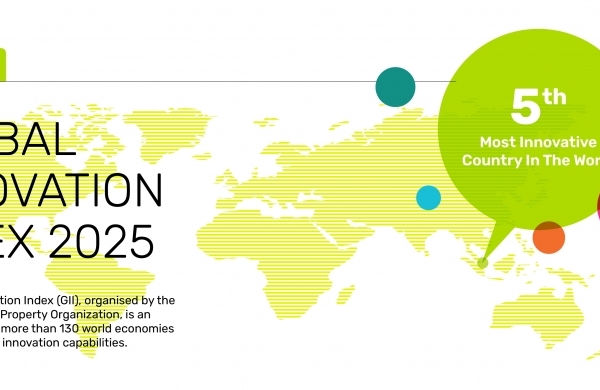Did not receive verification mail? Please confirm whether the mailbox is correct or not Re send mail

IPR Daily
- 2022-06-20 11:32:21
Note to Senators: U.S. Patent Office Remains Under a Permanent Injunction-Part 1
Please be noted that this article is the first part of the report, the second part could be seen here.
On June 8, 2022, Senators Leahy, Blumenthal, Klobuchar, Cornyn, Collins and Braun sent a letter to U.S. Patent and Trademark Office (USPTO) Director Kathi Vidal expressing concern about so-called "patent thickets" and requesting that she consider changes to the USPTO regulations and practices to address perceived problems with patent examination. The senators asked the USPTO to issue a notice of proposed rulemaking (which presumably must include new draft regulations) or at a minimum, a public request for comments followed by regulatory action, to address their concern about "the prevalence of continuation and other highly similar patents".
The senators appear to be oblivious to the fact that the USPTO proposed similar rules pertaining to a limitation on continuation applications in 2007, which were challenged in two separate but combined litigations that the USPTO lost (Tafas v. Dudas). In fact, the USPTO currently remains under a permanent injunction forbidding it from promulgating regulations that overlap with the "Final Rules" announced by the USPTO in August 2007. The sanction is contempt of court.
The senators are asking the USPTO to engage in substantive rulemaking, an action it is forbidden by law to do, without a direct statutory delegation of authority, which is limited and currently does not exist for the topics the senators request USPTO action on. Under the U.S. Constitution, only Congress has the power to create substantive patent laws, not the Executive Branch. The Senators may consider that by requesting the USPTO to do what is likely too difficult for them to do (pass statutes restricting the rights of innovators in the United States), they can create a fast bypass to their goal, but the structure of our government does not allow for that.
History of the 'Final Rules' Litigation: Tafas and GSK v. Dudas
For the senators who sent the letter to Director Vidal and those who were not practicing patent law in 2007-2008 (or not taught about this litigation), here is the history of the "Final Rules" case that resulted in a permanent injunction against the USPTO that remains in effect today.
On August 21, 2007, the USPTO published controversial Final Rules after comment titled "Changes To Practice for Continued Examination Filings, Patent Applications Containing Patentably Indistinct Claims, and Examination of Claims in Patent Applications." 72 Fed. Reg. 46716, 46716-46843 (Aug. 21, 2007). These Final Rules attempted to revise the rules of practice in patent applications relating to continuing applications, requests for continued examination, and for the examination of claims in patent applications. In particular, the Final Rules, among other things, limited the number of continuations to two, plus one request for continued examination. Any additional continuing application would be permitted only with a Petition showing good cause why the claims could not have been presented previously. It also limited the number of claims to no more than 5 independent and 25 total claims. If an applicant wanted more claims, it had to perform an onerous pre-examination search and provide an analysis of all presented claims under Sections 102, 103 and 112.
Plaintiff GlaxoSmithKline and sole inventor Triantafyllos Tafas sued the USPTO to obtain preliminary and permanent injunctions against the implementation of the Final Rules. I was the Chief Patent Counsel for GSK at the time and signed GSK's Verified Complaint. GSK alleged that the Final Rules violated the Administrative Practices Act, were promulgated without proper legal authority, were vague, arbitrary and capricious, and prevented GSK from fully prosecuting patent applications and obtaining patents on one or more of its inventions. GSK emphasized that the USPTO, as a federal governmental agency, obtains its power solely at the discretion and prerogative of Congress, which is embodied in 35 U.S.C. § 2. Congress in turn obtains its power in this area from the United States Constitution: "The Congress shall have Power . . . To promote the Progress of Science and the useful Arts, by securing for limited Times to Authors and Inventors the exclusive Right to their respective Writings and Discoveries ...." U.S. Const. art. I, § 8, cl. 8 (emphasis added). Congress has not granted the USPTO the authority to restrict the number of continuing applications, requests for continued examination, or claims that may be filed. Thus, by issuing final regulations that set forth binding and mandatory rules that impose such restrictions, GSK and Tafas argued that the PTO engaged in ultra vires rulemaking.
After full briefing on Motions for Summary Judgment, on April 8, 2008, Judge Cacheris agreed with Tafas and GSK that the USPTO did not have the authority to impose the "Final Rules" and issued the following permanent injunction:
the regulations titled "Changes to Practice for Continued Examination Filings, Patent Applications Containing Patentably Indistinct Claims, and Examination of Claims in Patent Applications," 72 Fed. Reg. 46,716-843 (Aug. 21, 2007)(to be codified at 37 F.R. pt. 1)(the "Final Rules") are declared null and void as "otherwise not in accordance with law" and "in excess of statutory jurisdiction [and] authority," 5 U.S.C. § 706(2);
Defendants Jon Dudas and the United States Patent and Trademark Office and their agents, servants, and employees are permanently enjoined from implementing the Final Rules set forth in paragraph 6.
Tafas and GSK v. Dudas, 511 F. Supp 2d 652 (E.D. Va 2007)
The USPTO appealed the Summary Judgment decision to the Federal Circuit. Thirteen amici submitted briefs, the majority of which supported GSK and Tafas. On March 20, 2009, Judges Prost and Bryson delivered a mixed decision, with a strong dissent by Judge Rader, holding that Final Rule 78 that limited continuation and claim practice was invalid as inconsistent with patent statutes, but holding that other aspects of the rule package were procedural and consistent with the law. The Federal Circuit agreed with the district court that the USPTO does not have substantive rulemaking authority to limit continuing applications. 559 F. 3d 1345 (Fed. Cir. 2009)
GSK, Tafas and the USPTO, along with numerous amici, petitioned the Federal Circuit for en banc review of this important ruling. On July 6, 2009, the Federal Circuit granted en banc review and vacated the panel decision, rendering the prior mixed Federal Circuit decision null and void. Shortly thereafter, David Kappos was appointed Director of the U.S. PTO. GSK settled with Director Kappos in exchange for an agreement to rescind the entirety of the Final Rules. Tafas petitioned the Federal Circuit to maintain the U.S. District Court decision in place, which was affirmed by Order on November 9, 2009, signed by Chief Judge Michel. With this Federal Circuit Order, the permanent injunction against the entirety of the Final Rules package issued by Judge Cacheris of the Eastern District of Virginia remains in effect to this day. Therefore, the promulgation of regulations that overlap with the Final Rules can risk contempt of court.
Source: ipwatchdog.com-SHERRY KNOWLES
Editor: IPR Daily-Selly
- I also said the two sentence
- Also you can enter 140words
 TOP IPR U.S. Lawyers 10 & Firms 10 Selection Officially Launched by IPR Daily
TOP IPR U.S. Lawyers 10 & Firms 10 Selection Officially Launched by IPR Daily WIPO Global Innovation Index 2025: China Enters Top 10
WIPO Global Innovation Index 2025: China Enters Top 10 Singapore ranks 5th in the 2025 Global Innovation Index; climbed two spots in Innovation Outputs
Singapore ranks 5th in the 2025 Global Innovation Index; climbed two spots in Innovation Outputs Federal Circuit lacks jurisdiction over award that doesn’t raise issue of patent law
Federal Circuit lacks jurisdiction over award that doesn’t raise issue of patent law


